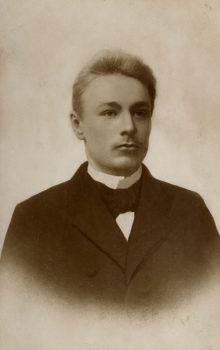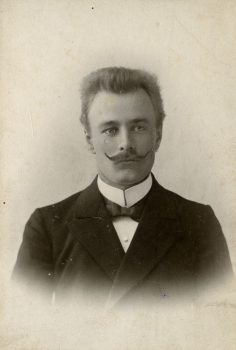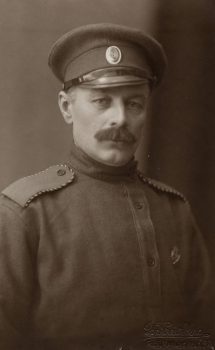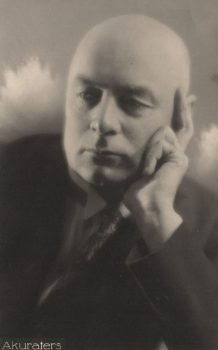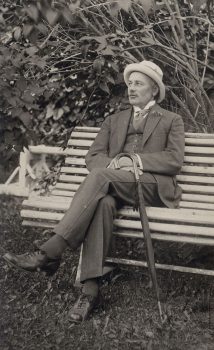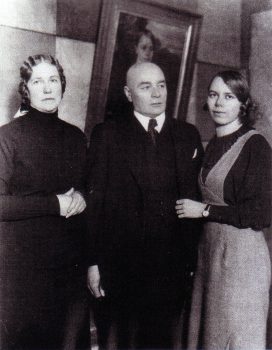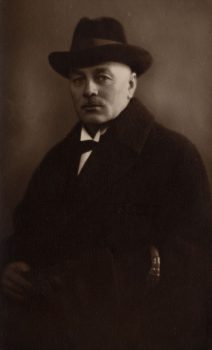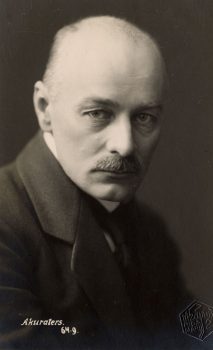“If Akuraters were taken away from our literature, then our literature would lose much of its inspirational flow,” writer Kārlis Skalbe has said about poet, writer, civic activist and politician Jānis Akuraters. His temperament, excitement and belief in the idea of the Latvian state merged with his powerful national art, and that put the writer at the epicentre of events that were linked to Latvia’s destiny.
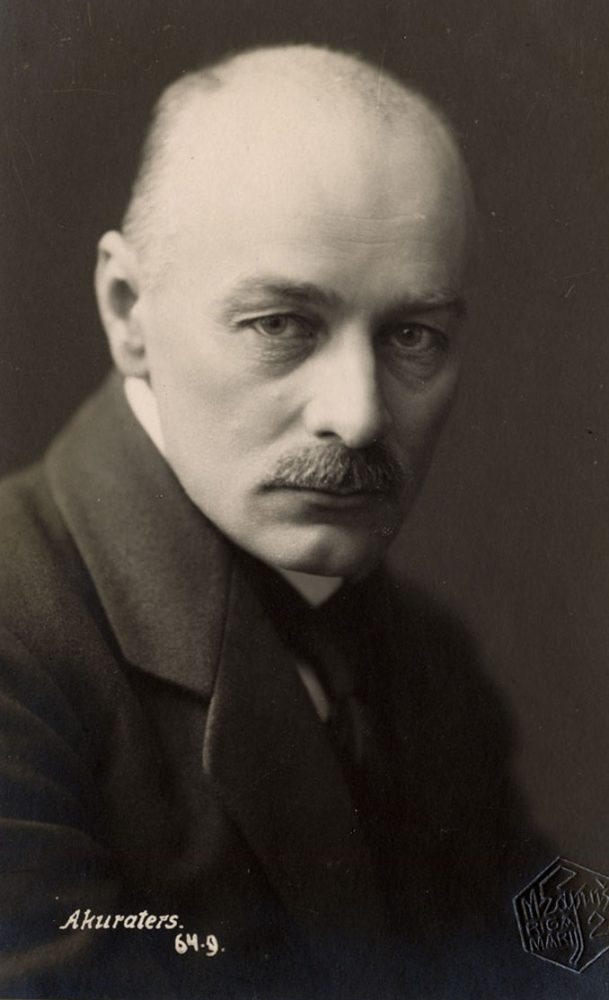
Jānis Akuraters
1876–1937
Galerija
In 1895, the magazine “Austrums” published Jānis Akuraters’ first poem. He was 19 years old. Ten years later, he released his first collection of poems, “Starry Night” (Zvaigžņu nakts), which is full of the imagery of classical Romanticism. Perhaps this was the first time in Latvian literature that there was such dense poetry. Between 1905 and his death in 1937, Jānis Akuraters was an active participant in and organiser of the literary world of Latvians. He published ten collection of poems, two novels, six collections of short stories, several plays and translations from French, Norwegian and German.
Akuraters’ work is dominated by a romantic sense of the world with idea and realistic incompatibility. He praised impressionistic moments and had the joie de vivre of a young Romanticist when it came to the power of life. Some stories and poems reveal Akuraters’ ability to present the complicated and multi-meaning structure of symbolic images. The work that he wrote and published between 1905 and 1909 represents a certain amount of decadent pathos.
Akuraters’ most popular, most widely read and most often published work was the story “Summer of the Servant Boy” (Kalpa zēna vasara), which was something of a sketch of memories. He wrote the story during the winter of 1908 while in Norway, and it was presented as an emigrant’s “letter home” to friends back home. In the 1924 book “The Continent’s Best Short Stories in 1923-24″, we find his “Death” (Nāve), which again has a story that is based on the writer’s own life.
Akuraters often said that the birthplace of his spiritual culture was France, and he visited the country several times to learn about the theatre, the riches of the Louvre, art exhibitions and literary circles. He attended lectures at the Sorbonne. His ability to speak French, German, Russian, Norwegian and a bit of Lithuanian and English allowed Akuraters to establish cultural contacts with people from other nationalities. From 1932 until 1937, he chaired the Latvian PEN Club.
Jānis Akuraters lived at a time that was full of events. Europe’s map changed along with political and ethical views, the living space and people’s lifestyle. Akuraters’ temperament, excitement, belief, thinking, clear expression and belief in the idea of the Latvian state and the power of national art put him at the epicentre of events which related to Latvia’s destiny. As a member of the Social Democratic Union, Akuraters took part in the revolution of 1905. In 1916, he volunteered to join the Latvian Riflemen. In 1918, he was elected to the National Council (later the People’s Council). In 1918, Jānis Akuraters was present when the independence of the Republic of Latvia was proclaimed. In 1919, he was appointed director of the Art Department of the Ministry of Education.
Daring to do things can be dangerous. Jānis Akuraters’ participation in the events of 1905 led to his arrest, deportation, emigration, poverty, famine, nervousness and a ban on working as a teacher. His involvement in the creation of the Latvian state cost even more. During the Soviet occupation, most of Akuraters’ work was banned and removed from libraries so that the great writer would be erased from the memories of readers.

